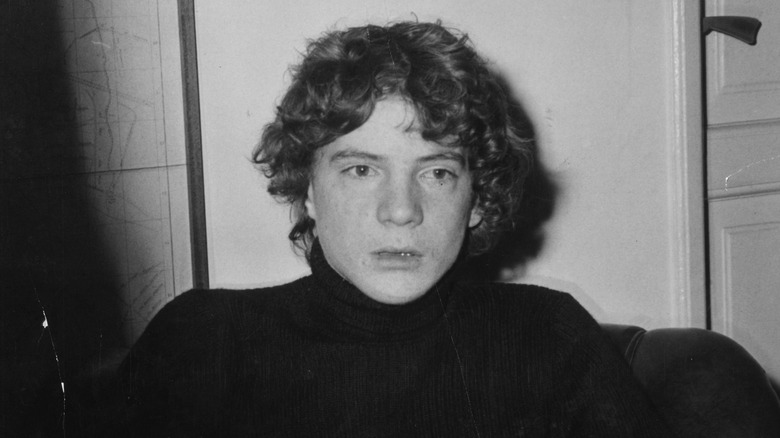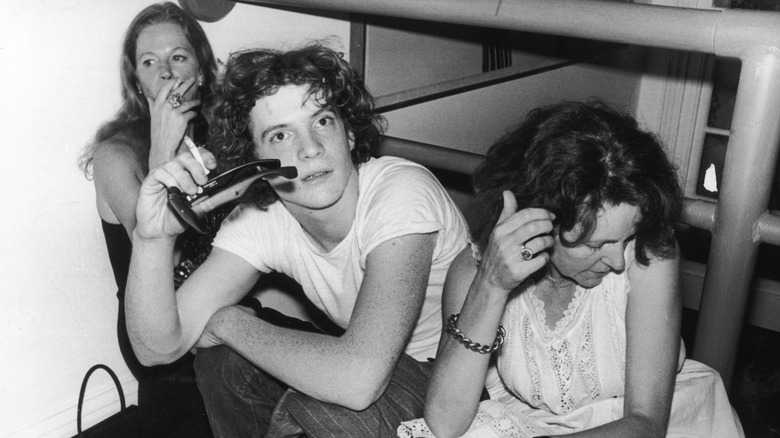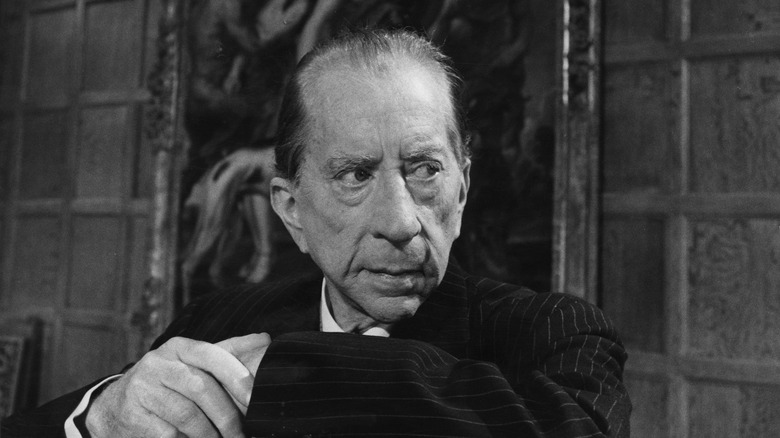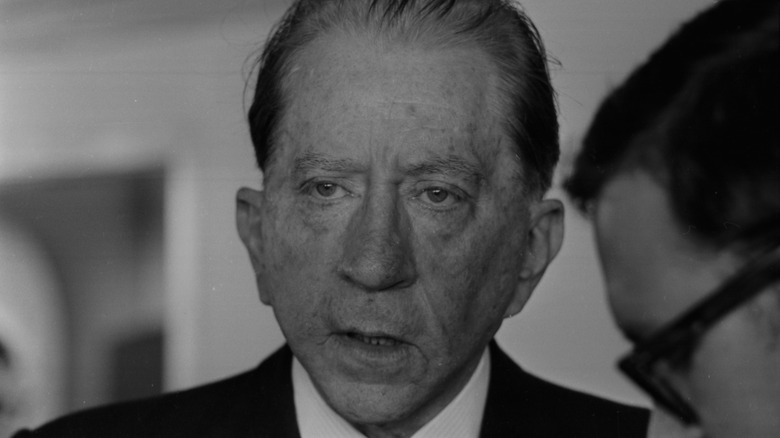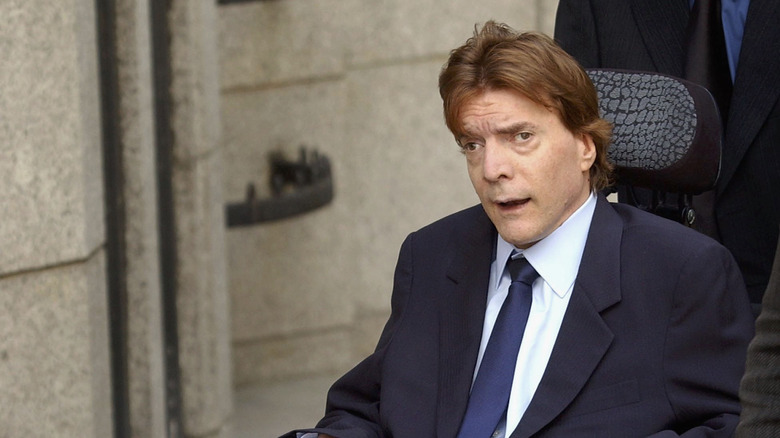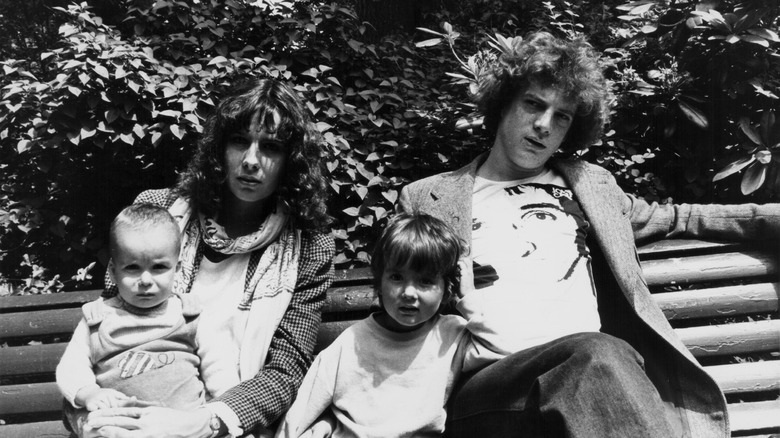The True Story Behind John Paul Getty III's 1973 Kidnapping
Kidnappings have formed major plot points in countless Hollywood blockbusters, TV dramas, and historical novels. And when it comes to real life, they are often remembered as some of the most infamous and tense events in recent history, with that of John Paul Getty III being a prime example.
Getty III went missing on July 10, 1973. He was just 16 years old, and through his father, John Paul Getty II, and grandfather, J. Paul Getty, was part of one of the richest oil dynasties in America. At the time, J. Paul Getty was famous for being the world's richest man, and as such, his grandson was a prime target for members of the 'Ndrangheta, the notorious and sprawling criminal gang sometimes referred to in the media as the Italian mafia. It is reasonable to assume that coming from great fortune would mean having the resources to get you back to your normal life as soon as possible. But surprisingly, things didn't turn out quite that way for John Paul Getty, whose family shocked the world with their response to the kidnapping: They refused to pay his ransom.
John Paul Getty III's hedonistic youth
John Paul Getty III was just 16 years old when he was abducted. He lived separately from his mother, who had divorced his father, and had taken to living a bohemian, hedonistic lifestyle in Rome. He sold paintings, made jewelry, and took on small acting roles while also carousing and enjoying the city's nightlife.
According to The Daily Beast, Getty III had been out on the town and was still in the street at around 3:00 a.m. on July 10, 1973, when he was accosted by a group of men who forced him into the back of a van, blindfolded him, and drove him away into the night. Little did he know that he was being taken to Calabria, where he was kept in a cave while his captors made contact with his family to extort millions of dollars for his safe return. But things weren't so simple.
Getty Sr. refused to pay
Following the kidnapping, the 'Ndrangheta first contacted John Paul Getty III's mother, Gail, a few days after he first went missing. However, she didn't exhibit the blind panic that many mothers would feel on receiving a ransom call, telling the San Francisco Chronicle: "I think the phone call was some sort of a joke" (via "Uncommon Youth: The Gilded Times and Tragic Times of John Paul Getty III" by Charles Fox).
She soon realized, however, that the call was serious, and in the days that followed reports emerged that the Getty family was moving toward a deal to secure the teenager's release. However, this all came crashing down when Gail — who received little money from the Getty family after her separation from John Paul Getty II — was unable to meet the kidnapper's demand of a $17 million ransom (per Wanted in Rome). She was told to get the money from her ex-husband, who lived in London, England, but he too claimed poverty. The only person who seemed able to pay the ransom was the boy's grandfather, the world's richest man, J. Paul Getty. But the patriarch made headlines when he flatly refused to pay up.
Despite his wealth, the eldest Getty was a notorious miser, whose penny-pinching extended to having a payphone installed at one of his homes for guests to use. In reporting the development, the press claimed that the billionaire was simply too cheap to pay for his grandson's safety. But Getty Sr., who was the head of a sprawling family, famously argued (per Wanted in Rome): "If I pay one penny now, I'll have 14 kidnapped grandchildren."
Striking a deal
But the story of the kidnapping of John Paul Getty III was about to take a grisly turn. After months of wrangling, including numerous phone calls between Gail and her son's captors, a local Italian newspaper received a horrifying parcel: a human ear. It was assumed to be the teenager's, showing that the kidnappers were indeed dangerous and willing to do Getty III harm. The severed appendage was accompanied by a new demand — the gang wanted the money within 10 days, or the boy would be killed.
In many ways, what happened next went down in history as J. Paul Getty Sr.'s epitaph, rounding off the crisis that would come to define his life and character despite his immeasurable success in the world of business and finance. In the days that followed, the patriarch struck a deal with the kidnappers for a new sum, $3 million — $14 million less than they had originally demanded, though perhaps they hadn't considered just how hard-nosed Getty Sr. could be. Of the $3 million, it emerged that just $2.2 million would be paid directly by the billionaire Getty, with the rest being paid by the kidnapped boy's father, who would himself receive the money in the form of a loan — with interest — from Getty Sr. The eldest Getty, meanwhile, would be able to write the $2.2 million off his tax bill, the maximum amount he was able to in the circumstances.
The tragic adulthood of John Paul Getty III
John Paul Getty III was eventually dumped on a Calabrian hillside after his mother had negotiated with his captors to ensure he was also given a blanket to prevent him from suffering too much from the cold. In the months he had been held he had been beaten, tortured, and mutilated, and he came home experiencing deep trauma as a result of his experiences (per Wanted in Rome).
Nevertheless, he was now a huge celebrity, who found himself on the cover of Rolling Stone and in demand for interviews, photoshoots, and acting roles. He married at 18 in a high-profile ceremony, adopting his wife's first child and becoming the biological father to a son, Balthazar, who became a famous actor in his own right. However, Getty III increasingly experienced addiction, and in 1981 a drug overdose gave him a stroke that left him with paraplegia. He required the constant use of a wheelchair and round-the-clock care, which was provided by his mother. He died in 2011.
Was the kidnapping a stunt?
Shortly after John Paul Getty' IIIs kidnapping, rumors circulated that the heir to his grandfather's oil fortune wasn't a traumatized victim at all. Rather, they suggested that Getty III had consented to being kidnapped or perhaps masterminded the stunt in a vain attempt to extract millions of his family's fortune, which the patriarchal J. Paul Getty was unprepared to share with his descendants during his lifetime. And indeed, the teenager had reportedly joked with friends and family that he would one day stage his own kidnapping.
As Charles Fox notes in "Uncommon Youth," even after the ransom demand was made to the Getty family and the teenager's mother had accepted the reality of the situation, tabloid newspapers were speculating that the kidnapping was an elaborate hoax. Specifically, one perpetrated by Getty III and a new lover as a way to enrich themselves after living in comparative poverty in Rome. Such rumors have been sustained down the decades by sensationalist newspapers and magazines and even modern TV. As noted by The Philadelphia Inquirer, the recent FX show "Trust" embraced the conspiracy narrative, with writer Simon Beaufoy arguing that Fox's "Uncommon Youth" suggests that it is the truth. Speaking to reporters, Beaufoy described the events as a "hoax gone wrong." Members of the Getty family, meanwhile, have taken exception to the series, with Getty's surviving sister Ariadne threatening to sue the network.
If you or anyone you know needs help with addiction issues, help is available. Visit the Substance Abuse and Mental Health Services Administration website or contact SAMHSA's National Helpline at 1-800-662-HELP (4357).
